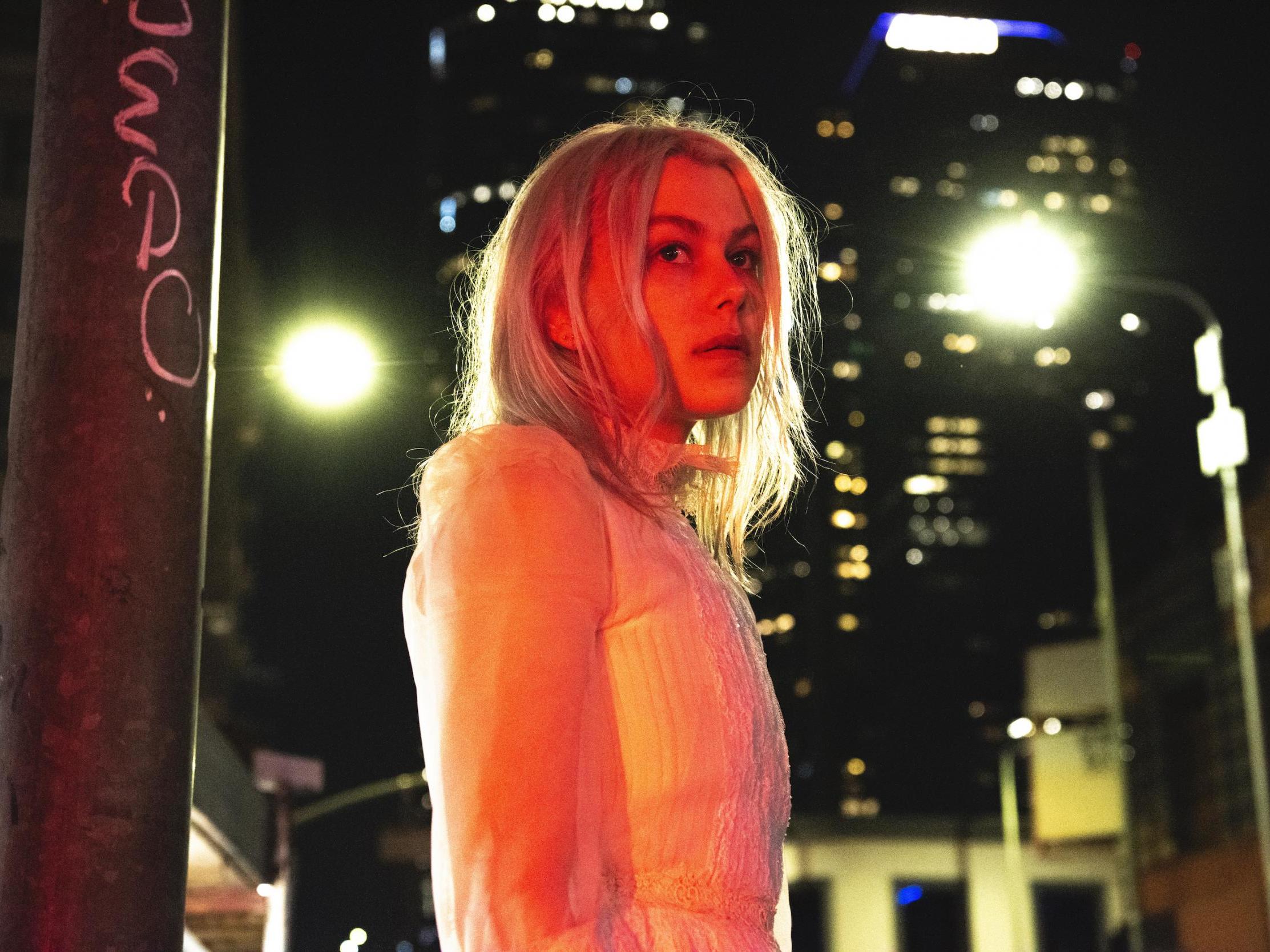Phoebe Bridgers review, Punisher: A fantastic, fatalistic album
On her second record, Bridgers has both sharpened and broadened her songwriting, with meditations on homesickness, love, depression and Ryan Adams

Phoebe Bridgers hates “whatever lyrics”. Those are easy to write. “All my favourite lyrics,” she said in a recent interview with The Guardian, “are just like truthful, weird s*** that you have to dare yourself into actually writing down.” Her fantastic, fatalistic new album, Punisher, is full of truthful, weird s***.
There are love songs, but they are as coarse as they are caressing. “You couldn’t have stuck your tongue down the throat of somebody who loves you more,” she sings on “Moon Song”, her weary falsetto accompanied by a few nylon guitar chords and the squeak of a finger sliding up and down a fret. “I’ll drive around again/ One hand on the wheel, one in your mouth,” goes “Savior Complex”, on which her voice lies on a soft bed of swirling strings. On “Chinese Satellite”, she recalls a lover “screaming at the evangelicals” about the non-existence of God. “But you know I’d stand on a corner embarrassed with a picket sign,” she confesses, “if it meant I would see you when I die.” Punisher is both poetic and prosaic, like a dusty drive along a dirt road.
“Kyoto” is what Bridgers calls a “resentment song” – though its chugging bass riff and extroverted eruptions of brass belie this – about how the dream of constant travel fails to match up with the reality, especially when you’re dogged by depression. She’s been touring almost constantly since her 2017 debut Strange in the Alps – a sombre indie-rock record that showed a similar knack for wry observation and emotional sucker punches – and so here, she craves home. There is an irony, of course, in yearning for comforting confinement now we’re all being told to stay indoors. In the lead up to this album’s release, Bridgers wasn’t supposed to have a day off for three months; instead, she’s been at home walking on her treadmill all day.
As well as homesickness and depression, “Kyoto” is about Ryan Adams. Last year, Bridgers revealed how a brief, consensual fling with the singer, when she was 20 and he was 40, became emotionally abusive. Other women came forward with allegations of sexual harassment and abuse, too, including Adams’ ex-wife Mandy Moore. “I’m gonna kill you/ If you don’t beat me to it,” she sings on the song’s euphoric, defiant chorus. Later, she recalls, “I wanted to see the world/ Through your eyes until it happened/ Then I changed my mind.”
The subject of “I See You”, whose staccato strings are one of a handful of decadent flourishes on the album, could very well be the same person. “If you’re a work of art, I’m standing too close/ I can see the brush strokes,” she observes, before adding, out of nowhere, “I hate your mum.”
Bridgers has released two side-project albums between Stranger in the Alps and now – an excellent EP with Julien Baker and Lucy Dacus under the group moniker Boygenius, and Better Oblivion Community Center with Conor Oberst. Collaborating, it seems, has both sharpened and broadened her songwriting. She tries out new sounds – a pensive banjo on “Graceland Too”, metal thrashing on “I Know the End”, elsewhere a celeste, a mellotron, a pump organ – without it ever feeling like she’s in danger of throwing the kitchen sink at it. There is room to breathe, but never any empty space in her songs, on which the aforementioned artists all appear. So, too, do various members of Bright Eyes, Yeah Yeah Yeahs and Warpaint, a sort of all-hands-on-deck approach that echoes the collaborative counterculture of Sixties Laurel Canyon.
On the artwork for Punisher, Bridgers is dressed as a skeleton. It’s fitting for the campy morbidity at play here: one minute she’s joking that if an ambulance siren wakes her up, “somebody better be dying” (on “Halloween”), the next she’s caveating her hatred for Eric Clapton’s “Tears in Heaven” with “but it’s sad that his baby died”.
Punisher ends with a thunderstorm of manic, discordant brass and drums and a pained scream, the physical culmination of the undercurrent of doom that has lurked throughout. But you emerge feeling not deflated but purged. Punisher has the effect of a particularly pummelling massage.
Subscribe to Independent Premium to bookmark this article
Want to bookmark your favourite articles and stories to read or reference later? Start your Independent Premium subscription today.

Join our commenting forum
Join thought-provoking conversations, follow other Independent readers and see their replies